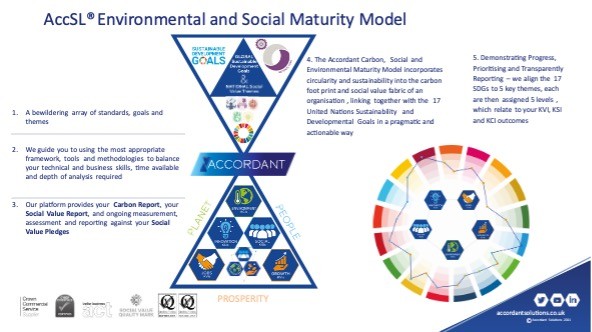Following on from my two earlier pieces on ESG, I am continuing with exploring the needs, issues and requirements of the Environmental, Social & Governance (ESG) environment.
Even in a recent episode of the long-running radio show, The Archers, I was intrigued to note that the storyline included a need for their fictional farm to produce a ‘Carbon Report’, which clearly illustrates that at all levels of business, there is an intent to address the requirements of ESG.
To be meaningful and effective, this new need to collect and analyse environmental and social data in order to satisfy reporting requirements, is best implemented not as an annual event, but as part of an ongoing process. For this to happen, there are huge benefits in having a centralised platform where the collected data can be stored, alongside the current defined goals and metrics. Such a platform can maximise and unlock the value of the data by delivering insights, trends and the ongoing ability to read and report on the current and future status – plus also the ability to monitor, measure and report on trends. If goals, risks, measurements or compliance requirements change at any given point, it also becomes an easy and straightforward updating exercise, instead of a lengthy process of perhaps working through months or years of recorded data.
Many organisations are already making commitments on delivering various ESG related targets. As a priority, these commitments need to be transparent, audit-ready and also represent a true reflection of both the current and predicted states. Each organisation will need to give careful consideration as to whether the best way forward would be either establishing their own platform in which to operate, or using an existing framework.
Existing platforms include:-
- The Value Reporting Foundation which is the merger of the International Integrated Reporting Council (IIRC) and the Sustainability Accounting Standards Board (SASB);
- GRI – founded in Boston in 1997 following public outcry over the environmental damage of the Exxon Valdez oil spill. They are a non-profit organizations with a legacy from CERES and the Tellus Institute (with involvement of the UN Environment Programme).
The important message here, is not which one any given organisation decides to use, but to ensure that any tools / platform opted into for data collection and analysis will be supported, along with in offering the flexibility of being enhanced, in order to accommodate the fast-changing landscape of both current and future standards and metrics.
Consider the following as a way forward:-
- Identify a framework and map your key business indicators;
- Select a suitable technology platform that will support the framework;
- Chose a service partner that has the experience, tools and methodologies to balance your technical business skills, time available and depth of analysis required.
Accordant is such a partner, with a platform that provides for your organisation’s Carbon and Social Value reporting needs, with ongoing measurement, assessment and reporting against your Environmental and Social Value pledges.

If you have any questions, or would like to chat further about your organisation’s ESG reporting needs, please do reach out – I’d love to hear from you.
Main image by Kampus Production from Pexels




